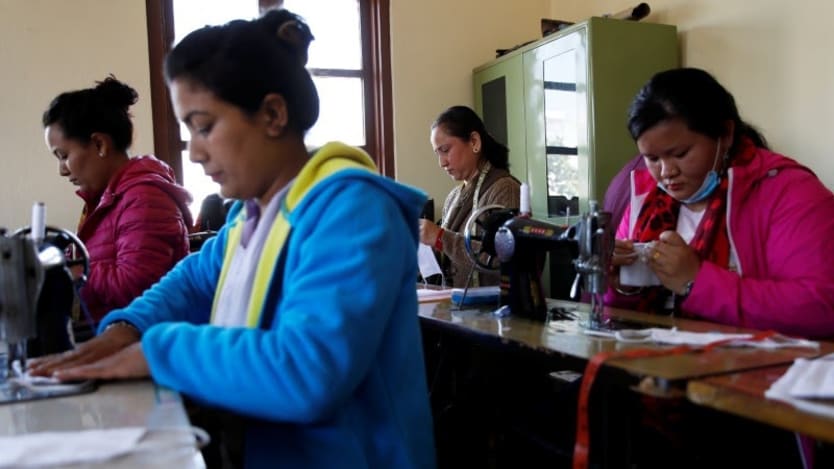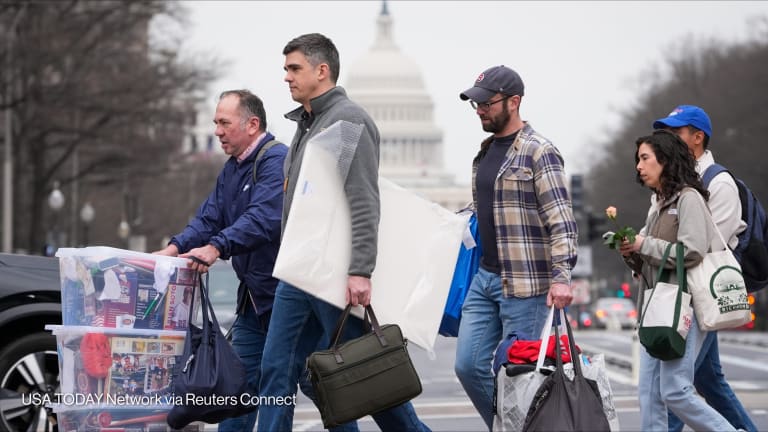
CANBERRA — COVID-19 has not affected the U.S. Agency for International Development’s plans to engage new business partners on its program deliverables.
“The challenges before us add complexities and difficulties ... but we also have critical program activities to pursue.”
— Mark Walther, director, USAID Office of Acquisition and AssistanceBut there is growing awareness that partners will be impacted by whether outcomes can be delivered within time frames — or at all — as well as additional costs to protect staff and communities where programs operate.
COVID-19 — a timeline of the coronavirus outbreak
Follow the latest developments on the new coronavirus that causes COVID-19.
“USAID understands that, as a result of the outbreak, some of our implementing partners might find themselves incurring additional implementation costs not originally envisioned, principally related to safety measures and the protection of staff,” said Mark Walther, director of the Office of Acquisition and Assistance, as part of a business forecast review during a conference call on March 13. “USAID will consider any additional proposed costs on a case-by-case basis, provided that such costs are allowable, allocable, and reasonable.”
Walther advised partners to engage with relevant USAID contact officers prior to incurring costs related to COVID-19 and said the costs will be subject to audit and must not exceed the obligated amount of the award.
“At this time, reasonable costs in relation to safety measures are generally allowable,” he said.
The call followed the release of guidance for implementing partners on March 12, and Walther hosted a call on Wednesday to answer specific questions partners have for USAID in this time of uncertainty.
Further information and guidance related to COVID-19 and the impact on business partners will be communicated in the coming weeks, with procurements still continuing as planned.
What additional costs is USAID considering?
Walther said that for many of the costs, case-by-case decisions will be made with “no blanket determinations” at this stage.
“Reasonable, allowable, and allocable costs will be permitted,” Walther reiterated. “Costs incurred that are out of the ordinary should be justified and documented in writing. … Cost determinations will be made on a case-by-case basis. This applies to additional insurance coverage for projects and to sick leave for contractors.”
Costs to maintain staff readiness, purchase information technology equipment, and evacuate staff will be considered.
“Under the terms and conditions of USAID contracts, mission directors are authorized to determine, for any reason, the necessity of evacuation on a country-by-country basis,” Walther said. “There is currently not a plan to issue a blanket determination for all contractors. These determinations have to be made at the mission level, as they are case-specific.”
Cancellation costs will also be considered, but Walther urged business partners to seek refunds and other avenues to reduce out-of-pocket expenses first.
To support a faster response to partners on decisions related to unexpected costs, Walther said that USAID is investigating whether funds within a contract can be moved to address a COVID-19 issue and other ways it can streamline approval processes.
Impacts on business opportunities
Walther said that forecast business opportunities are currently continuing as planned.
“As many of you know, we recently undertook our traditional quarterly review and updating of the business forecast and outreach to partners,” he said. “We realize that the challenges before us add complexities and difficulties in preparing proposals and understanding operating environments, but we also have critical program activities to pursue.”
The advice that has been given to USAID staff is to assess the ability to continue on a case-by-case basis, Walther said. For partners, continuing to monitor the business forecast would be important to identify delays to planned solicitations.
Cocreation workshops, used to shape a program before going to market, may change.
“The specific nature of adjustments to areas such as cocreation workshops, oral presentations, and other in-person collaborative approaches will be made by missions and Washington bureaus and operating units,” Walther said. “There are ways to effectively use virtual and remote technologies to try to overcome the travel and group-size challenges we are facing at this time, but there may be situations where another approach will be needed.”
But new opportunities are also likely to emerge through an expedited procedures package for infectious diseases — currently in the final stages of review — which will support a faster and more flexible way of responding to COVID-19 through the U.S. aid program.
USAID will continue making information available to business partners in the weeks to come, as the COVID-19 situation evolves.
Search for articles
Most Read
- 1
- 2
- 3
- 4
- 5








